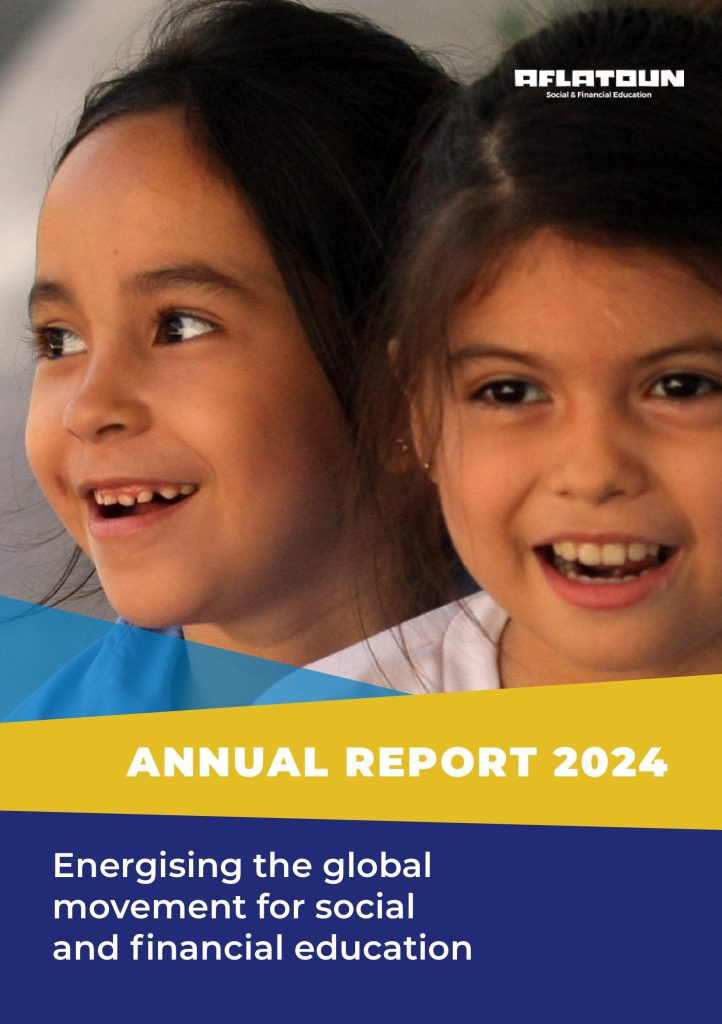We must not deny the world’s adolescents the social, emotional, financial, and entrepreneurial skills they need to cope and respond to the daunting challenges they face and that they will face in the new post-COVID-19 world.
Around the world schools have been closed in an attempt to contain the spread of the novel coronavirus (COVID-19), disrupting learning for more than 1.5 billion children and adolescents in 192 countries. Out of those, 520 million are in lower and upper secondary school levels, including 251 million young girls. This public health emergency further exacerbates a dire situation in which nearly 200 million of the world’s adolescents were out of school before the start of the pandemic.
Experiences from previous school closures have shown that adolescents are most affected by interrupted education. We’ve seen that, among teenagers, there is an increase in mental health issues, early marriages; more children are likely to be recruited into militias; sexual exploitation of girls and young women rises; teenage pregnancies increase; and child labor escalates exponentially.
Adolescents during this global pandemic, and subsequent economic crisis especially, need social, emotional, financial, and entrepreneurial skills to cope and respond to the daunting challenges they face and that they will face in the new post-COVID-19 world.
Since 2016, over 9.4 million children and adolescents have directly participated in UNICEF-supported skills development programs. We have also impacted the lives of millions more by strengthening systems of skills development in 97 countries through improving curricula, teacher performance, and community and business engagement. In 2019, the Aflatoun International network — consisting of 330 organizations in 101 countries — through work with partners including UNICEF, have reached 11+ million children and youth providing quality and relevant life skills, financial, and entrepreneurship education.
As most countries have turned to distance learning as a means of mitigating lost time in school, distance learning modalities have largely ignored vocational and life skills development and have focused on academic skills such as languages, mathematics, and science. Furthermore, within those distance learning modalities, equity issues still persist that leave out the most vulnerable adolescents including the poor, young girls, and the disabled.
As countries slowly open up their education systems, there is an opportunity to reimagine these systems to ensure all girls and boys who are supposed to be in secondary education, even the ones who were out of school before the COVID-19 crisis, develop the skills they need to become life-long learners, find productive work, make wise decisions, and actively engage in their communities. Doing so will ensure that these youth are successful today and that education systems are more prepared to deal with future shocks.
As such, we call on governments, civil society, private sector and other education stakeholders to promote a rights-based and skills-based approach to education that:
1. Doubles down on efforts to promote essential skills and competencies for success in the new world, including transferable and life skills, digital skills, financial and entrepreneurship education, civic engagement, and environmental education.
UNICEF and Aflatoun are currently working together in 10 countries to promote life skills and financial education for adolescents, including in Egypt where, in partnership with the Egyptian government, they are rolling out “Integrated Education Services for Vulnerable and Marginalized Children,” introducing life skills as part of Education 2.0, Egypt’s ambitious education reform project that will impact every student and school in Egypt.
2. Invests in skills development any time and any place that leads to certification. This includes online, TV, radio, and printed materials as well as alternate learning pathways such as catch up, remedial, and accelerated learning, which provide learning and skills development opportunities for all girls and boys.
For example, UNICEF’s Learning Passport, launched in April 2020 in partnership with Microsoft, provides a global online digital learning platform for digital content to be delivered and facilitated online. Learning Passport has been rolled out in Timor Leste and Jordan as a response to the COVID-19 crisis. Plans are underway to deliver digital solutions for youth using this platform in collaboration with governments, the private sector, and civil society organizations across seven countries by the end of 2020.
3. Provides children and adolescents with participatory opportunities and platforms — including digital platforms, school clubs, and community centers — to harness and put their skills to work.
In Jordan, UNICEF’s Makani community centers provided 66,000 Jordanian and Syrian refugees with face-to-face life skills training while the Nahno.org platform matched 24,000 volunteering opportunities with young people resulting in a total of 341,140 hours of volunteer work in 2019.
In all the work we do, we want to stress the important role that civil society organizations have to play. The capacities of these organizations and the deep roots that they have in communities will ensure that we are reaching the most vulnerable, that they are active participants in their own skills development, and more importantly that the skills they are developing are relevant to their social and economic success now and in the future.
—
Robert Jenkins is associate director of education for UNICEF.
Roeland Monasch is chief executive officer at Aflatoun International.












